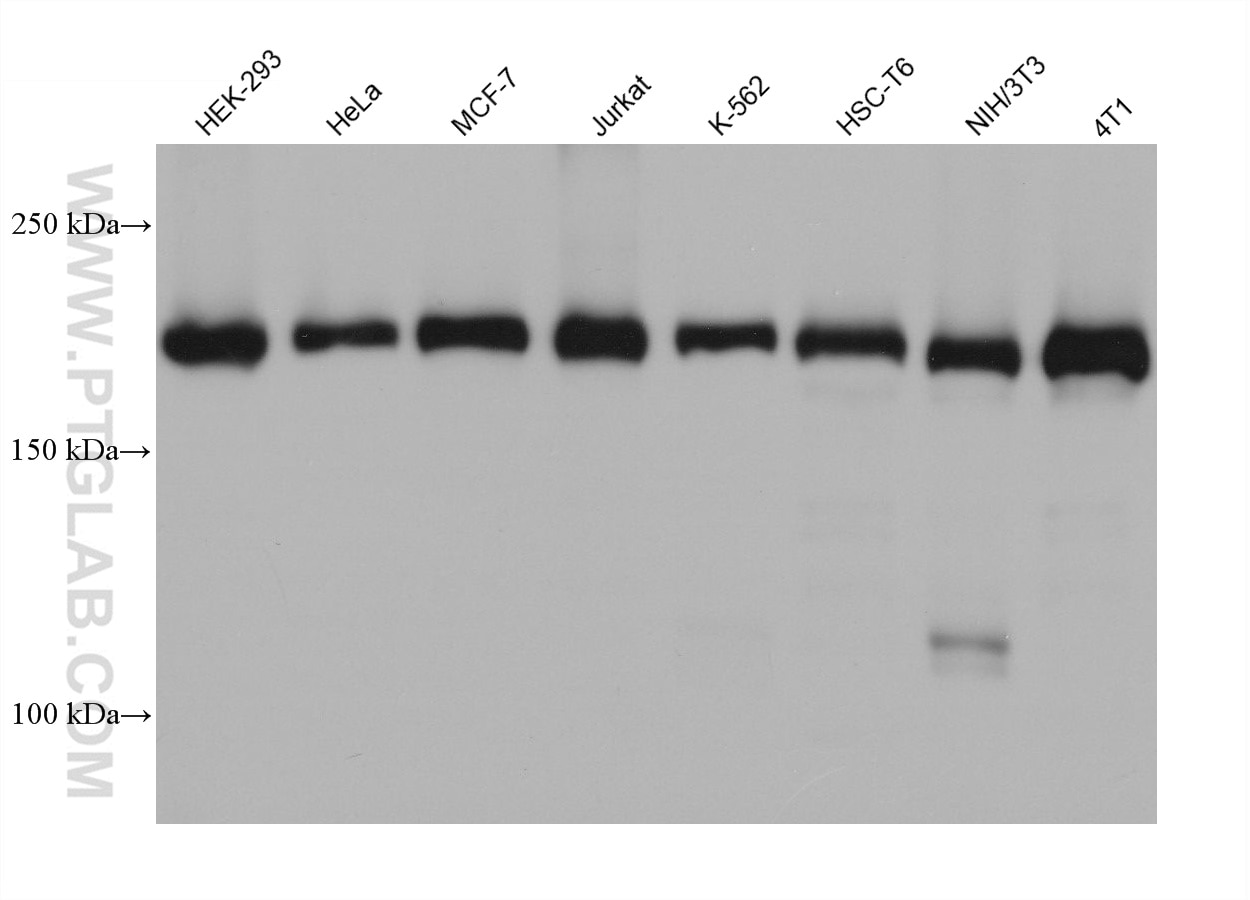Validation Data Gallery
Filter:
Tested Applications
| Positive WB detected in | HEK-293 cells, HeLa cells, MCF-7 cells, Jurkat cells, K-562 cells, HSC-T6 cells, NIH/3T3 cells, 4T1 cells |
Recommended dilution
| Application | Dilution |
|---|---|
| Western Blot (WB) | WB : 1:5000-1:50000 |
| It is recommended that this reagent should be titrated in each testing system to obtain optimal results. | |
| Sample-dependent, Check data in validation data gallery. | |
Product Information
68565-1-Ig targets UBR2 in WB, ELISA applications and shows reactivity with human, mouse, rat samples.
| Tested Reactivity | human, mouse, rat |
| Host / Isotype | Mouse / IgG1 |
| Class | Monoclonal |
| Type | Antibody |
| Immunogen | UBR2 fusion protein Ag13446 相同性解析による交差性が予測される生物種 |
| Full Name | ubiquitin protein ligase E3 component n-recognin 2 |
| Calculated molecular weight | 439aa,50 kDa; 1755aa,201 kDa |
| Observed molecular weight | 201 kDa |
| GenBank accession number | BC064512 |
| Gene Symbol | UBR2 |
| Gene ID (NCBI) | 23304 |
| RRID | AB_3085267 |
| Conjugate | Unconjugated |
| Form | Liquid |
| Purification Method | Protein G purification |
| UNIPROT ID | Q8IWV8 |
| Storage Buffer | PBS with 0.02% sodium azide and 50% glycerol pH 7.3. |
| Storage Conditions | Store at -20°C. Stable for one year after shipment. Aliquoting is unnecessary for -20oC storage. |
Background Information
UBR2(Ubiquitin-protein ligase E3-alpha-2) is also named as C6orf133, KIAA0349 and N-recognin-2. It is a component of the N-end rule pathway and recognizes and binds to proteins bearing specific N-terminal residues that are destabilizing according to the N-end rule, leading to their ubiquitination and subsequent degradation. It has four isoforms produced by alternative splicing.
Protocols
| Product Specific Protocols | |
|---|---|
| WB protocol for UBR2 antibody 68565-1-Ig | Download protocol |
| Standard Protocols | |
|---|---|
| Click here to view our Standard Protocols |
